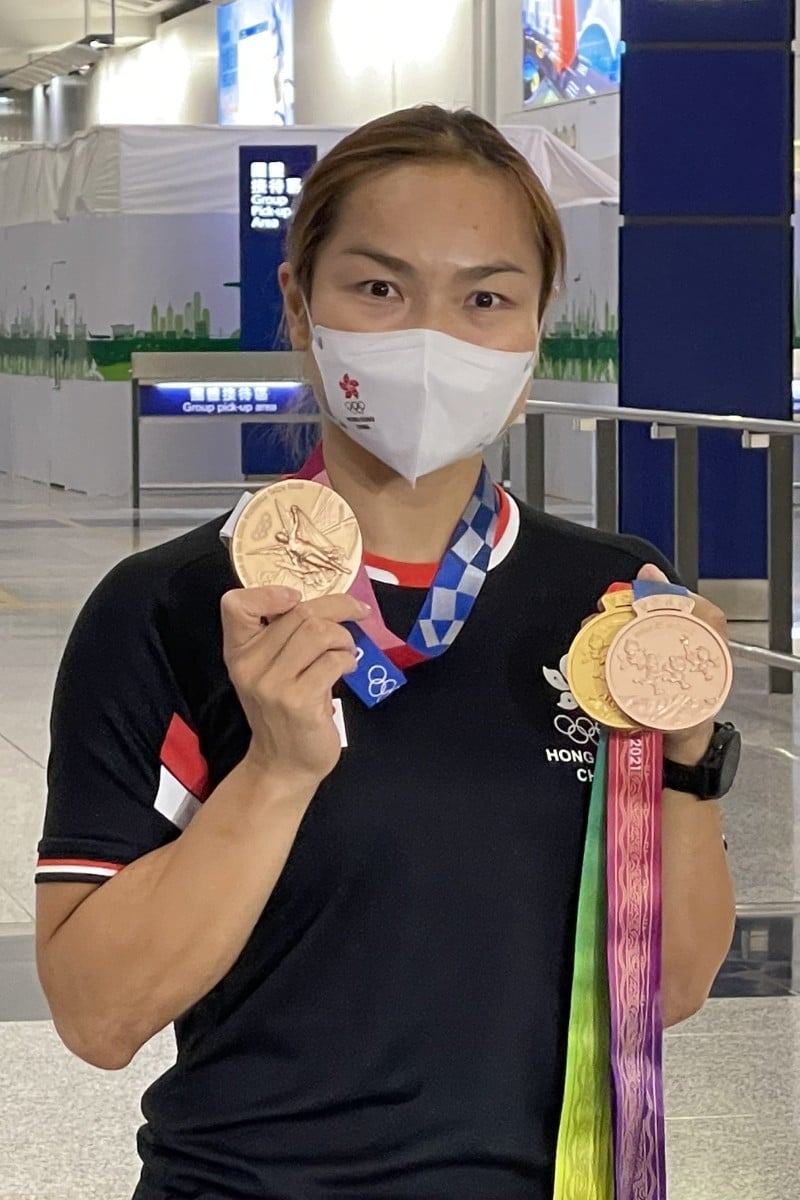
Your Voice: Killing Hong Kong’s wild boars should be last resort; pave the way for driverless cars (short letters)
- In this week’s letters, students write about Olympic champion Sarah Lee and how she inspires teens in the city with her dedication
- Another student writes about the importance of organ donation and how it could make a difference
 Track cycling star Sarah Lee Wai-sze is a hero and inspiration for many Hongkongers. Photo: Chan Kin-wa
Track cycling star Sarah Lee Wai-sze is a hero and inspiration for many Hongkongers. Photo: Chan Kin-waHave something to say? Send us a letter using this Google form.
Hong Kong cyclist is a role model for teens
I am writing in response to the article, “Hong Kong Olympic medallist Sarah Lee’s 3am study routine” (Young Post, October 27).
I always complain about having to do my homework and revision.
I know very little about sports, but when I see the joy of athletes who win competitions, I truly want to be like them and not worry about my studies. But I realised I was wrong after I read the article about Hong Kong’s top cyclist Sarah Lee Wai-sze.
She had to spend more than 10 hours studying and completing cycling training every day when she was in secondary school. But she never gave up and was determined to become a world-class cyclist.
She is a wonderful role model for all of us.
Melody Wong Yuk-tung, STFA Leung Kau Kui College
The importance of organ donation
Our liberal studies teacher recently asked us to do an assignment on organ donation.
I learned a lot through this project.
There are hundreds of patients with organ failure waiting for transplants in Hong Kong. However, the city’s organ donation rate is very low.
Just over 300,000 people – out of a population of more than 7 million – are recorded on the Centralised Organ Donation Register.
Schools can play a very important role in raising awareness of this issue among students.
Also, parents can share the significance of donating organs with their children.
Both teachers and parents can set an example for students by registering themselves as organ donors.
Daisy Yeung, Tsuen Wan Public Ho Chuen Yiu Memorial College
Organ donation saved this student’s life
Instagram needs to take action
Like any other social media platform, Instagram could pose a danger for both children and teenagers.
It should take steps to prevent under-13s from creating accounts and block adults from contacting under-18s they don’t know.
As teenagers post photos and communicate with each other freely on Instagram, they become vulnerable.
Also, Instagram is driven by “likes”. This can take a toll on teenagers’ self-esteem.
Filters and photo editing can alter a person’s appearance, which could lead to an obsession with body image. Certain hashtags (such as #skinnyinspiration) can also negatively affect users.
Preventing children who are under 13 from using Instagram without verifiable parental consent can help them build up healthier values.
Vanessa Man, STFA Leung Kau Kui College
Instagram’s toll on mental health
Self-driving cars are good for society
Self-driving cars bring many benefits to society. They could improve road safety by reducing human error, which is the single biggest cause of road accidents.
Driverless cars will allow disabled people to get around more comfortably.
Also, the police will have time to focus on more important issues since speeding and careless driving would be a thing of the past.
However, there are still many challenges such as security concerns. Driverless vehicles could be targeted by hackers, who could take control of the cars. Then there’s the moral, financial and criminal responsibility for crashes and breaches of the law and privacy issues, including the potential for mass surveillance.
I hope these problems will be resolved and driverless cars will become a reality soon.
Li Wai-wing, Tsuen Wan Public Ho Chuen Yiu Memorial College
The toxic tactics of technology
Don’t kill the wild boars
Hong Kong authorities are considering putting down some wild boars, but animal rights groups have opposed the plan.
Wild boars are a big nuisance when they stray into urban areas. Meanwhile, attempts to control this problem have failed because people keep feeding them, officials say.
Stories of huge, wild pigs attacking people may sound frightening, but they attack only if they are threatened. In fact, these animals are timid and usually avoid humans.
The government should raise people’s awareness about the negative effects of feeding wildlife and rethink its development projects which could be one of the reasons behind the increased sightings of wild boars in built-up areas. Killing should be a last resort.
Blaza Jamillah Hessa, 15, Catholic Ming Yuen Secondary School
Students should broaden their horizons
Schools should motivate students to explore their interests in arts, sports and other fields without focusing only on academic subjects.
Since Hong Kong is an international city, its students should broaden their knowledge. Hence, they should be allowed to take part in workshops and training courses related to extracurricular activities, helping them to gain hands-on experience and knowledge about all kinds of professions.
Society should learn to strike a balance between students’ interests and the expectations of their teachers and parents.
If we are willing to dream big, work hard and focus on our education, nothing is beyond our reach.
A good balance between studying and recreation is a win-win situation.
